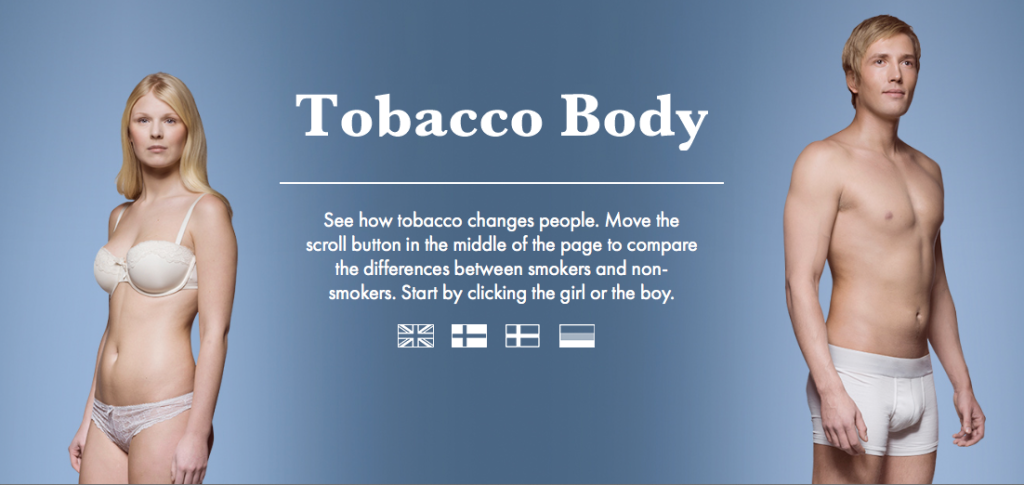Nicotine is the addictive drug in tobacco smoke that causes smokers to continue to smoke. Addicted smokers need enough nicotine over a day to ‘feel normal’ – to satisfy cravings or control their mood. How much nicotine a smoker needs determines how much smoke they are likely to inhale, no matter what type of cigarette they smoke. Along with nicotine, smokers inhale about 7,000 other chemicals in cigarette smoke. Many of these chemicals come from burning tobacco leaf. Some of these compounds are chemically active and trigger profound and damaging changes in the body. Tobacco smoke contains over 60 known cancer-causing chemicals. Smoking harms nearly every organ in the body, causing many diseases and reducing health in general.
TOBACCO BODY
How Tobacco Affects Your Body
Brain
- Nicotine, the drug that makes tobacco addictive, goes to your brain very quickly.
- Nicotine makes you feel good when you are smoking, but it can make you anxious, nervous, moody, and depressed after you smoke.
- Using tobacco can cause headaches and dizziness.
Mouth
- Tobacco stains your teeth and gives you bad breath.
- Tobacco ruins some of your taste buds, so you won't be able to taste your favorite foods as well.
- Tobacco causes bleeding gums (gum disease) and cancers of the mouth and throat.
Heart
- Smoking increases your heart rate and blood pressure and causes heart disease and heart attacks.
- If you try to do activities like exercise or play sports, your heart has to work harder to keep up.
Lungs
- Smokers have trouble breathing because smoking damages the lungs.
- If you have asthma, you can have more frequent and more serious attacks.
- Smoking causes a lot of coughing with phlegm (mucous).
- Tobacco can cause emphysema (lung disease) and lung cancer.
Skin
- Smoking causes dry, yellow skin and wrinkles.
- The smell sticks to your skin.
Muscles
- Less blood and oxygen flows to your muscles, which causes them to hurt more when you exercise or play sports.







































